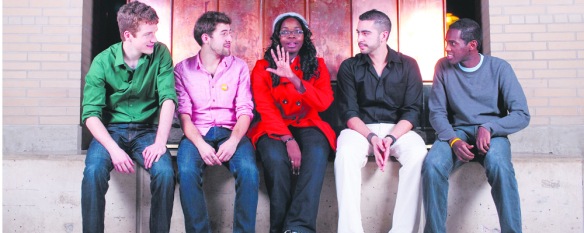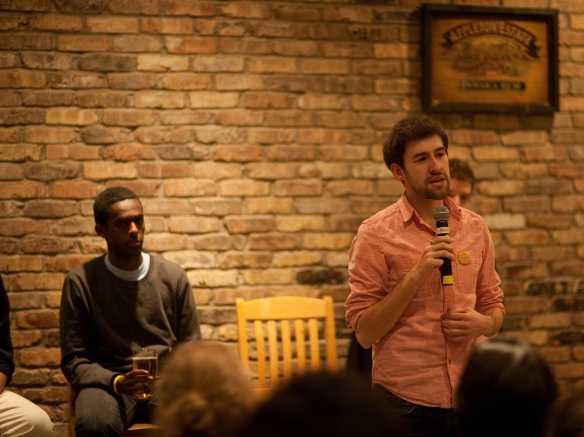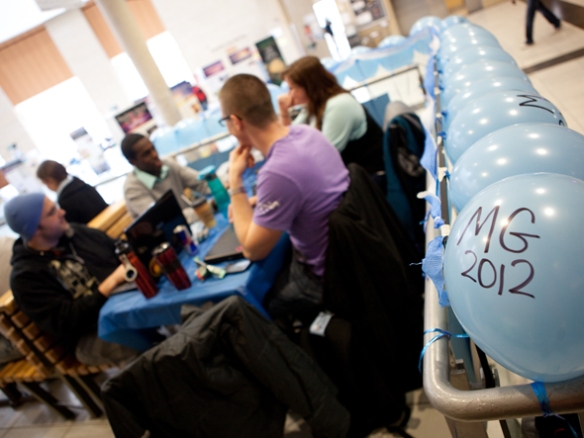Following his fifth place finish, Alex Ramirez is claiming electoral fraud.
In a Feb. 3 post on his campaign site (which has since been taken down, but remains on Facebook), Ramirez claimed that the “vote count was manipulated” and that “far too many things happened during the campaign [for him] to have only generated 704 first place votes, and to have come in dead last.”
Ramirez claims his campaign team created “mass hysteria across campus,” and that they did too much to not have had more success in the election. He uses anecdotal evidence from the campaign period to support claims that someone deliberately manipulated election results.
Let us be clear: This is not an attempt to ‘bash’ Ramirez. His accusations are serious and inviting of criticism. Before they can be pursued further, three claims in Ramirez’s post-election blog must be examined.
1) Campaigning has a static formula to harvest votes
In addition to claiming his campaign created mass hysteria across campus, Ramirez lists the following pieces of ‘evidence’ to claim his relatively low, 704-vote total wasn’t realistically possible:
– There were 2,700 visits to his website on Feb. 1 and Feb. 2
– His team handed out 5,200 fliers
– A greet suit mascot “gathered a substantial amount of enthusiasm” for his campaign
Ramirez seems to believe that vote totals are simply the product of the time, energy and resources spent on campaigning. Never mind that every candidate also had websites, campaign materials and enthusiastic supporters (even if they’re not in green suits) that would have reached many of the same students as Ramirez’s team. His logic here excludes the following scenarios:
A) Students reviewed his campaign materials and disagreed with his platform proposals, or simply did not like his as much as another candidates’.
B) Students received his campaign materials and did not vote (66.6% of eligible voters did not vote)
In addition, Ramirez claims that on three separate occasions, “we received texts from people saying things like ‘Everybody I know has voted Alex, he has this in the bag.'”
Then, he offers up this quote: “I want all of you to know that this has nothing to do with losing, but the fact that I ended up with only 704 votes. Just using all the probabilities, it is literally impossible to have only gotten 704 first place votes.”
“Literally impossible.”
2) The Silhouette was part of the ‘manipulation’ and intentionally skewed coverage
The Silhouette has a proud tradition of editorial autonomy, separating its management and editorial content from any MSU body. Still, Ramirez claims we intentionally manipulated the vote by skewing our coverage of the all-candidates debate.
Ramirez also offers up this line: “For those of you that were at the debate, you all know [the Silhouette] couldn’t report the truth, because the story line would have been one line only – Ramirez dominated the debate.” Had we observed such a story line, we would have reported it.
He added that the Sil neglected to mention his closing speech, and the “deafening chants” that followed it. Those chants came exclusively from Ramirez’s small, but vocal campaign team. The planned stunt was, supposedly, reflective of a tide of support.
To insinuate that we intentionally disregarded the facts to manipulate the vote while providing only an obviously skewed first-hand account of the events as evidence is erroneous and insulting to our organization and staff.
3) Online voting opened the doors for easy manipulation of voting totals
Ramirez says that because the elections committee made a late, but pre-campaign period switch from paper to online balloting, it was evident that “they do not know when they themselves are being manipulated.”
There’s no mention of how the votes were actually manipulated, or how the tracks of a manipulated vote would have been covered up. There was the implication, though, that Ramirez was the target of conspiracy.
He then provides this ominous message: “Is this common practice in society? Because if this were the case in any election, in any part of the world, it would cause a scandal, and in some cases, civil wars.”
—
The reality of this situation is that a former MSU presidential candidate is making potentially libellous claims that an organization conspired against him – without providing any tangible evidence.
If there’s any manipulation involved, it’s from Ramirez’s unsupported claims that attempt to undermine the legitimacy of the MSU and its elections department.
Over the coming days, the Silhouette will investigate details surrounding the election, gathering information and evidence on the election’s procedures and its results.
– BD




